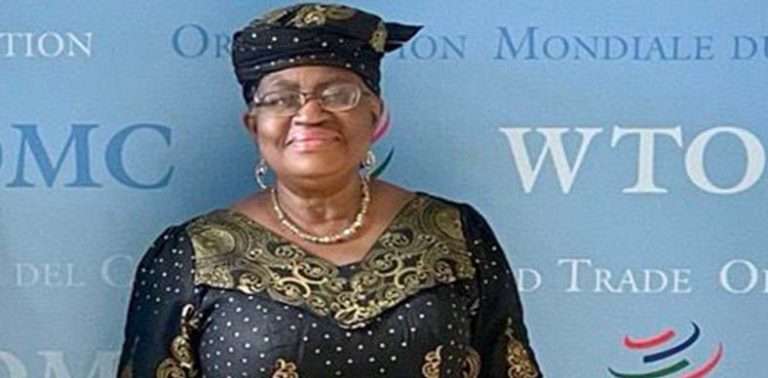Here are 15 most expensive universities in Nigeria as compiled by The PUNCH.
Wigwe University, Isiokpo, Rivers State, tops the list with a tuition fee of N12m, including accommodation fees.
Nile University, Abuja’s most expensive programme, Medicine and Surgery, costs N5.95m, according to the school’s website. Fees only cover tuition; accommodation is not included. Tuition for returning students is the same as stipulated in their admission letters.
Lead City University, also known as LCU, is a private university in Ibadan, Oyo State, Nigeria. Their MBBS Medicine and Surgery programme, according to the school’s website, costs N5.5m per session. Other expensive programmes are their Nursing, Dentistry, and Pharmacy programmes which cost N2.5m each per session.
Afe Babalola University, founded by legal luminary, Chief Afe Babalola (SAN), is another expensive university in the country. First-year students of Medicine are to pay N4,567,500 while final-year students will pay a total of N5,586,000. This excludes accommodation which costs N850,000 for the Super Deluxe one-person room, and other fees [Students Association fees, medical screening, ABUAD souvenir (fresh students)] which cost around N70,000.
READ ALSO: Economic Hardship: Pastor Suspends Collection Of Offerings Church[VIDEO]
Pan-Atlantic University, Lagos, charges between N3.9m to N4.4m for its most expensive programme, B.Eng Mechatronics. The fee covers reading materials, and academic facilities, among others. This does not include the non-refundable acceptance fee of N250,000 to be paid on admission.
Igbinedion University, Okada, Edo State, is Nigeria’s first private university, known for its commitment to quality education and academic excellence. According to the school’s website, final-year medical students can pay as much as N4m as tuition. This excludes other sundry levies.
Bowen University, Iwo, Osun State, a private Baptist Christian Nigerian university located at Iwo in Osun State, Nigeria, is also another university with expensive fees. It is affiliated with the Nigerian Baptist Convention. According to its website, the most expensive programme, the Medicine and Surgery (pre-clinical) programme, costs around N3.8m. Other Fees of N84,000 per session are made up of BBSF – N4,000, Entrepreneurship and Soft Skills – N20,000, Internet Access and Portal Management – N40,000, and Health Care – N20,000.
All new and returning students are required to pay N20,000 and N10,000 respectively to Bowen University Parents Association Forum in the first semester and present a receipt of the same for clearance. Also, 70 per cent payment of school fees is expected to be paid at the commencement of the session while the balance of 30 per cent is expected to be paid at the commencement of the second semester.
READ ALSO: Soludo Sacks 21 Anambra Transition Committee Chairmen
American University of Nigeria, Adamawa State, founded by former Vice President, Atiku Abubakar, in Yola, the capital of his home state of Adamawa, North-East Nigeria, charges N3.511m as its highest fee for its undergraduate engineering students. This excludes accommodation which costs N432,000 for its triple-room apartment, and feeding which costs N813,960 for 21 meals.
Benson Idahosa University, Benin City, Edo State, is a private, Christian university. Previously named Christian Faith University, it was renamed in honour of the late Archbishop Benson Idahosa, a charismatic Pentecostal minister from Benin City, Nigeria, and is said to reflect his evangelical beliefs. Its Medicine and Surgery programme costs between N3.3m and N3.5m per session, according to its website. This is closely followed by its Nursing, Medical Laboratory Science, and Law programmes which cost N1.8m, N1.5m, and N1.2m respectively per session.
Babcock University, a private Christian co-educational Nigerian university owned and operated by the Seventh-day Adventist Church in Nigeria, is located at Ilishan-Remo, Ogun State, Nigeria, equidistant between Ibadan in Oyo State and Lagos. The most expensive programme, which is the LL.B in Law programme, costs N1,539,990, according to the school’s website. This excludes feeding which costs N523,600 (two-meal option) or 785,400 (three-meal option).
Redeemer’s University is a private university in Ede, Osun State, and prides itself as one of the most cost-effective, top private universities in Nigeria. Their fee structure, according to their website, is flexible and can be paid in three installments. The most expensive programme, which is their undergraduate Law programme, costs N1.447m followed by their Bachelor in Nursing programme which costs N1.1m per session.
READ ALSO: Judicial Misconduct: NJC Sets Up Panel To Probe 35 Petitions Against
Caleb University, Imota, Lagos, is a private university that is also one of the most expensive in the country. The highest fee, paid by law undergraduates, costs N1.4m, according to the fee tracker available on its website. This excludes matriculation fees, ICT and global certification, and parents forum which cost N65,000 in total.
Ajayi Crowther University, founded in 2005, is a private faith-based university located in Oyo State, Nigeria. Its Law programme costs N1.7m while its Nursing programme costs N1.4m.
Joseph Ayo Babalola University is a private Nigerian university located in Ikeji-Arakeji, Osun State, Nigeria, established in 2004 by the Christ Apostolic Church Worldwide. The most expensive programmes are the BSc Nursing, Medical Laboratory Technology, and Law programmes which cost between N1.3m and N1.5m each per session.
Covenant University, Otta, Ogun State, affiliated with the Living Faith Church Worldwide, is a member of the Association of Commonwealth Universities, Association of African Universities, and National Universities Commission, and is one of the most expensive universities in the country. Most of the university’s programmes range between N1.1m to N3m, according to the university’s website. This includes feeding but excludes accommodation.
Notable mentions include Achievers University, Novena University, Adeleke University, Rhema University, Lagos State University, Obong University, and Oduduwa University.
